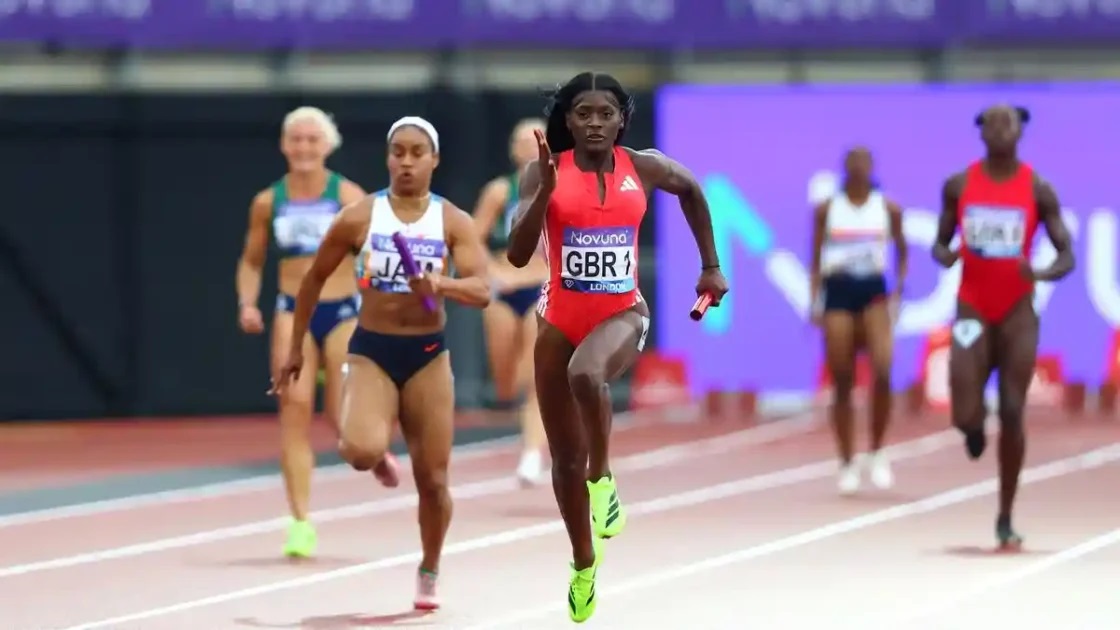Starting from 1 September, athletes who wish to compete in the female category at world-ranking competitions must undergo a one-time genetic test, according to World Athletics, the global governing body for track and field.
The regulation, which will be in place ahead of the World Athletics Championships in Tokyo (13–21 September), requires athletes to take a test for the SRY gene, a gene located on the Y chromosome responsible for initiating male biological development.
The test can be conducted via a cheek swab or blood sample and is designed to be taken only once in an athlete’s lifetime.
Oversight and administration of the test will be handled by national athletics federations.
A negative result, indicating no Y chromosome, is required to compete in the female category at world-ranking events.
Athletes who test positive for the SRY gene will not be eligible for these events under the female category but may still compete in non-ranking competitions or other categories.
“This move is about ensuring fairness,” said World Athletics President Lord Sebastian Coe.
“In a sport striving to encourage more female participation, women must feel there’s no inherent biological disadvantage.”
World Athletics states the test is highly reliable, with a “minimal risk” of false positives or negatives, according to an FAQ page published alongside the announcement.
This policy aligns with similar steps taken by World Boxing.
World Boxing approved the use of SRY testing in May 2024 as part of its mandatory sex verification measures for all competitors.
“At the elite level, if you want to compete in the women’s category, you must be biologically female,” Coe reaffirmed.
“For us, biology cannot be overridden by gender identity.”
The new rule stems from decisions made at the March 2024 World Athletics Council meeting.
At the meeting, several measures were approved to tighten eligibility requirements for athletes who are transgender or have differences of sex development (DSD).
In March 2023, World Athletics implemented a ban on transgender athletes who had experienced male puberty from competing in the female category at the international level.
A working group has since recommended merging rules for both DSD and transgender athletes.
It cited growing evidence that testosterone suppression cannot fully eliminate the biological advantages conferred by male puberty.
Under previous DSD regulations, athletes were required to lower their testosterone levels to a specific threshold for at least six months before becoming eligible to compete in women’s international events.
This issue has drawn significant public and legal attention,
This is particularly in the case of Caster Semenya, a South African middle-distance runner and two-time Olympic gold medallist.
Semenya, who was born with DSD, has been banned from competing in her signature 800m event since 2019.
This followed new rules that restricted testosterone levels for events between 400m and one mile.
Earlier this July, the European Court of Human Rights (ECHR) ruled in Semenya’s favoR.
It stated that her right to a fair legal process had been violated by the Swiss Federal Supreme Court.
The Court had rejected her 2020 appeal against World Athletics’ regulations.
Importantly, the ECHR case was not a direct challenge to the DSD rules themselves, nor to World Athletics.
Rather, it was against Switzerland’s government for failing to protect Semenya’s human rights under the European Convention.
The new gene-testing policy marks the latest development in the ongoing global debate over fairness, inclusion, and biology in elite sport.
Many applaud World Athletics for creating what they see as a level playing field for women.
On the other hand, critics argue the measures risk further marginalizing athletes with atypical biological traits.
Nevertheless, Lord Coe says the goal is to maintain trust and integrity in women’s sports.
“This is about protecting the female category, making sure that women enter sport knowing there’s a fair system in place.”
As athletics prepares for the Tokyo World Championships under the new framework, all eyes will be on how federations and athletes respond to a rule that could reshape the future of elite competition.



